EVERY racing fan will be able to recall at least one incident over the last couple of years where they read or heard about a jockey failing a drugs test. It becomes massive news within the community and is covered widely, particularly on social media.
There are a few common themes with every failed drugs test over the past decade but one particular trend stands out. It is always for a recreational drug such as cocaine.
Go to any pub in Ireland and there is likely to be someone in that pub who is using cocaine. It is not just a city problem anymore. It is not a middle-class problem anymore. The entire country is affected by cocaine abuse. So that begs the question – just how much of a problem is recreational drug use within racing?
How big is the issue?
When writing this article there were three people with whom The Irish Field consulted. They were Dr Jennifer Pugh, chief medical officer for the Irish Horseracing Regulatory Board, an addiction counsellor who works with the Irish Injured Jockeys and who wishes to be referred to as Pat, and a former jockey who has very recently battled addiction and asked to remain anonymous.
We begin by asking all three if, in their opinion, there is an issue with substance abuse - such as cocaine – in Irish racing and, if so, how bad is it?
Dr Jennifer Pugh
It is concerning, It is no secret how big of an issue cocaine is in society, in general, and it’s the same in racing. It has become widespread among jockeys and in the racing community, just like it has across society.
People have this idea that ‘Sure, everyone is doing it, what’s the harm?’ The problem is that it can so quickly escalate from being a once-a-month occurrence - when you know you are not riding for the rest of the week – to a thing you do every weekend.
Just by the nature of addiction, people don’t recognise that it is an issue. People can be way down the path before they realise they are in a bad situation.
It is a completely different scene than it was just a couple of generations ago. Now cocaine and other drugs are very much normalised. For racing, we have a young population and a lot of sharing houses and socialising, and that environment lends itself to drug use.
These substances are really, really addictive. A recreational user who uses it at the weekends probably isn’t giving us many issues. But the issue is that the recreational user can very easily become a regular user over the course of weeks and months and that is when the issues start.

Former Jockey
The issue with cocaine in racing is just as bad as it is in general society.
It was someone within the industry that introduced me to cocaine. Racing can be very taxing. It really takes its toll on you. Everything that you put yourself through, from starving yourself, it builds up. Years ago, the escape was alcohol, now it seems to be cocaine. It’s so readily available. It’s scary. It escalates so quickly. It gets to the stage so quickly that you are losing jobs, you can’t get up in the morning for work, and you don’t have money in your pocket. It’s a horrible way to live.
Pat, Injured Jockeys Fund Counsellor
I would be concerned, yes. I do think there is a problem in racing which aligns with the issue that society faces. There are drugs everywhere. There is an epidemic of cocaine everywhere. I think it’s more evident in racing because racing is so upfront about it. They do a lot of testing, when someone is caught, it is made public knowledge, it’s in the media. It is not hidden.
ALL three of our interviewees compared the issue that society faces with cocaine abuse and the issue that racing faces. But the thing is, jockeys are not like most of society.
They take out a jockeys’ licence and they are bound by the rules of racing which include zero tolerance to any prohibited substance being in your system on raceday.
Most of society is not running the risk of going to work in the morning and blowing their whole career with a positive drug test, but jockeys do. A year or more out of work is a long time. This train that is racing keeps moving. Trainers and owners move on. Other jockeys will grab at any opportunities that come their way, so time out can be detrimental to a jockey’s career. It can be difficult to come back.
Anti-doping process
The IHRB tests jockeys at 30 meetings a year and that works out at around 240 tests. There is drug testing at five point-to-point meetings a year which equates to a further 40 tests a year.
Typically there are eight riders selected across the card and they are randomly selected on a given day. Returning jockeys coming back from suspension for failed drug tests are subjected to very regular testing in the years that follow the initial suspension.
The IHRB does one ‘blitz’ day every year where every rider in the weighroom is tested. If you compare those figures to most other sports in Ireland, racing tests its athletes far more than any other sport.

Even when you take out the blitz day and the regular testing on returning jockeys, the IHRB carries out around 280 tests per year. According to the Sport Ireland website, the GAA only does roughly 140 tests a year and rugby carries out around 165 tests annually.
But as Dr Pugh explains, the ultimate aim is for racing to be free from drug use. She explains that she wants nobody to test positive but the only way we will get there is if those who are using drugs come forward and seek help.
“The anti-doping programme is there to catch people but we really would like to be catching nobody. It’s not a nice scenario when there is a positive test. But the only way we are going to get to a point where we are not catching people is if and when people are struggling that they come forward and ask for help themselves before a positive test.
“Ultimately the more someone becomes involved in drugs and addiction, the more haphazard and reckless their life becomes, and then the more likely they are to get caught. My responsibility as a doctor to anyone who comes forward is their health and their confidentiality.
“Our role is to make sure racing is safe. From our point of view, we aim to get help to people well before they test positive. I always dread when a test comes up positive and I am waiting to see whose name comes up. Because you know this person’s life is about to drastically change. So it’s much more favourable if we get to help someone before a positive test.”
Counselling
A key area in the recovery process for a jockey who has either failed a drug test or is struggling with addiction abuse is mental recovery. The impact of a jockey failing a drug test can be absolutely devastating.
When a test is positive, the jockey faces a suspension. The result is published in the newspapers, it’s detrimental to their career, and can be an extremely tough time for the jockey and his family. That is why counseling can be so vital. Dr Pugh explained the work that Pat, the addiction counsellor, does and why he is so vital in the treatment process.
“We are very lucky with Pat. He is very experienced and understands racing. He is very knowledgeable and nuanced in racing and that’s very important.
“When you sit down in front of someone who doesn’t know anything about racing, it can be difficult because they don’t know about the difficulties of the game. The miles driven, the falls, the weight issue, all that. So, to have Pat - who understands the game - is important.” Pat gave us his views on why a jockey may turn to cocaine and other substances during their career.
“In my mind, the main reason why a jockey might turn to drugs is stress. It is a very stressful lifestyle. There are not too many jobs where there are two ambulances following you around while you work. On top of that, there is the added pressure of not making a mistake. Because they have to go back in and face the trainer, the owners, and the public, so it is a very difficult very stressful career.”
but I was in complete denial”
THE former jockey who wanted to speak anonymously had a long five-year battle with addiction abuse. His story is unfortunately all-too-common in the industry. He wanted to share his experience so that other jockeys and anyone who is struggling with addiction abuse can see that it is possible to come out the other side.
“When I was riding, cocaine wasn’t really prominent. I was focused on racing, I was getting plenty of rides and enjoying life. The addiction issues that I faced happened after I stopped riding.
“I started off using cocaine just at the weekends, just being social. I wouldn’t say I had a problem in the early stage, or at least I didn’t think I had a problem. At that stage, it wasn’t interfering with my life or my work. Then very quickly it got out of hand.
“I lost my job, which I had never done in over 30 years in our industry. Even at that stage, I was still walking around in denial. It got to the stage where I would be in my house with the curtains pulled and my phone off, just so that I could sit down and get a high. That was a daily occurrence.
“A few people had spoken to me and voiced their concerns but I was in complete denial. I thought I was enjoying it, I thought I was having a good time but the truth of the matter was I was just self-medicating. It was an escape from reality.”
This retired jockey, who rode numerous winners over jumps and had a very prominent career, slipped down a very dark path and could not see a way out. It was only through the help of Dr Pugh and the Injured Jockeys Fund that he was able to beat his addiction.
“It was arranged by my family that I would go and speak to Jennifer, I was still in a bit of denial at that stage. I went over to her and within five minutes we had established that I had a serious depression issue that was feeding into my addiction. That was a huge weight off my shoulders.
“After speaking to Jennifer for an hour, I could see a way out of this life of addiction that I was living, whereas I couldn’t before. After a few sessions with the Injured Jockeys Fund counsellor, it was suggested that a treatment centre would do me the world of good.
I went into treatment last September. At that stage, I was only three weeks clean. I spent a month in there. A year later down the road, I am very happy with the progress that I have made.
“All the relationships that were strained have been repaired through the 12-step programme. I’m actually in a stage now where my life is very manageable. It is the first time in years that I can actually say I am happy. I can’t stress enough how thankful I am to Jennifer, to the Irish Injured Jockeys, and to the treatment centre.”
THE one aim we had for this article was to try and connect with any jockey or member of the industry who is currently struggling with addiction abuse.
You may be currently on a dark path and you may not be able to see light at the end of the tunnel. But as Dr Pugh explains there is help available to you.
“If someone is going through treatment but I feel like they are far enough along in their treatment to ride, I may still personally do a test that doesn’t go to the anti-doping organisation. But it gives me extra reassurance that they are safe to ride and that everyone around them is safe.
“We have to take the proper precautions to ensure safety but also, we can’t have the regulator being a barrier for people who may want to come forward and seek help. And for those who have come forward and sought help, there is a very good trusting relationship between ourselves and them.”
Dr Jennifer Pugh and Pat, the counsellor with Irish Injured Jockeys, do phenomenal work and have incredible success in helping people out.
On top of that they are supported by some incredible treatment centres and, as Dr Pugh stresses, if you are currently riding but struggling with addiction, there is a path that you can take that helps you get treatment but also doesn’t keep you on the sideline for long enough that it causes too much damage to your career.
“We have good links with several of the addiction centres across the country,” Dr Pugh said. “Cuan Mhuire in Athy is the treatment centre that has received generous donations from Goldophin. They do amazing work and Godolphin is supporting anyone working in the thoroughbred industry including jockeys.
“Aiséirí is the name of the other rehabilitation centre we frequently use. They are based in Wexford and Tipperary. The centres are fantastic and if we need someone in quickly, they are more than willing to facilitate us.
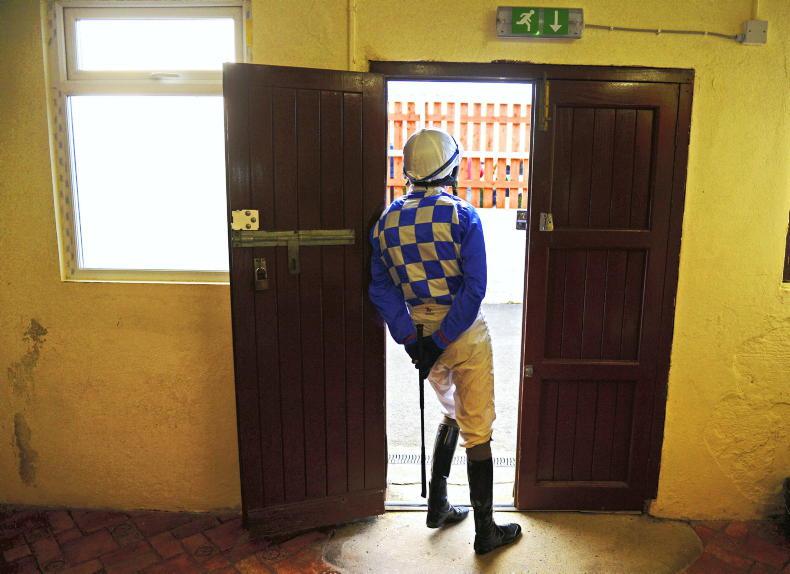



 This is a subscriber-only article
This is a subscriber-only article
 It looks like you're browsing in private mode
It looks like you're browsing in private mode




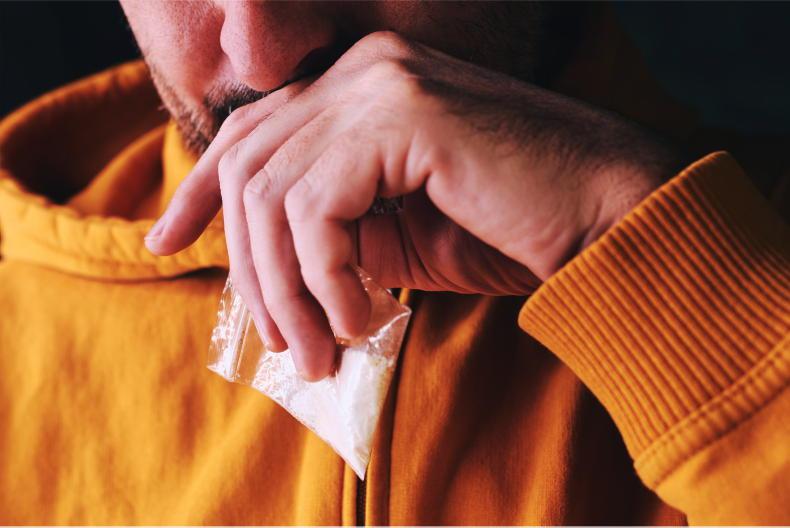
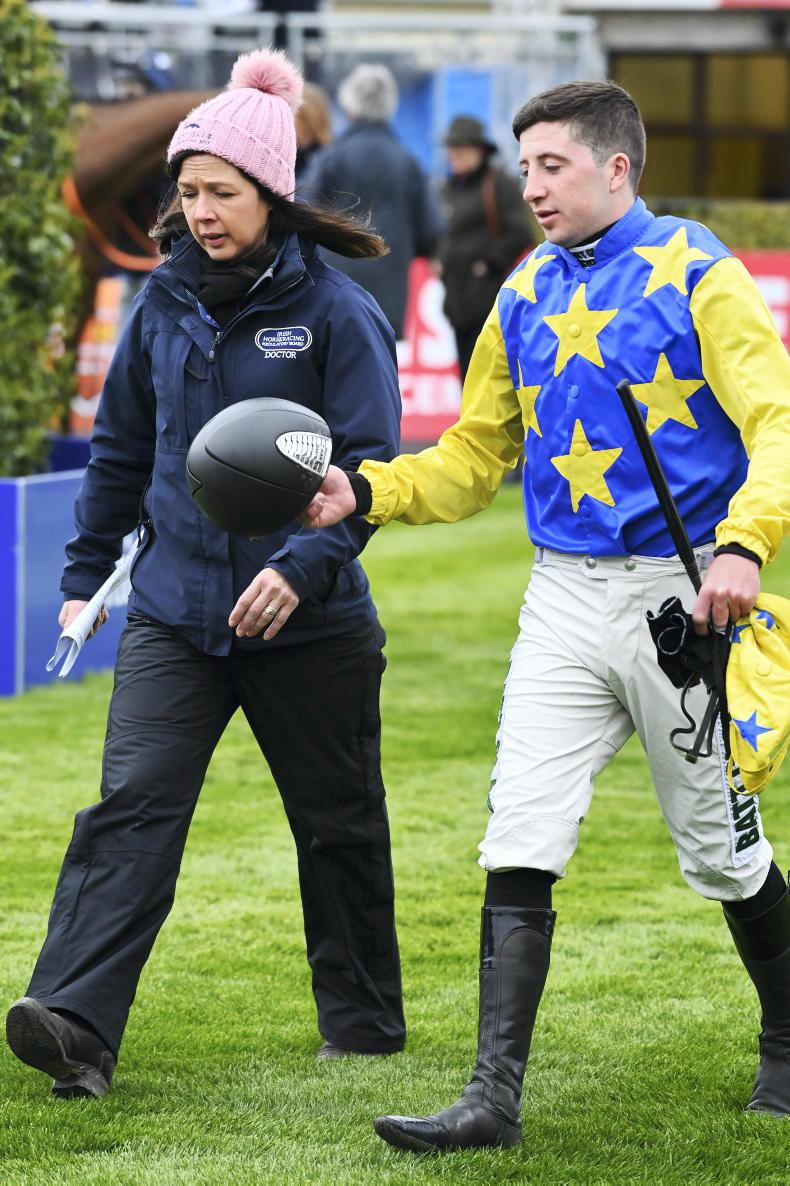

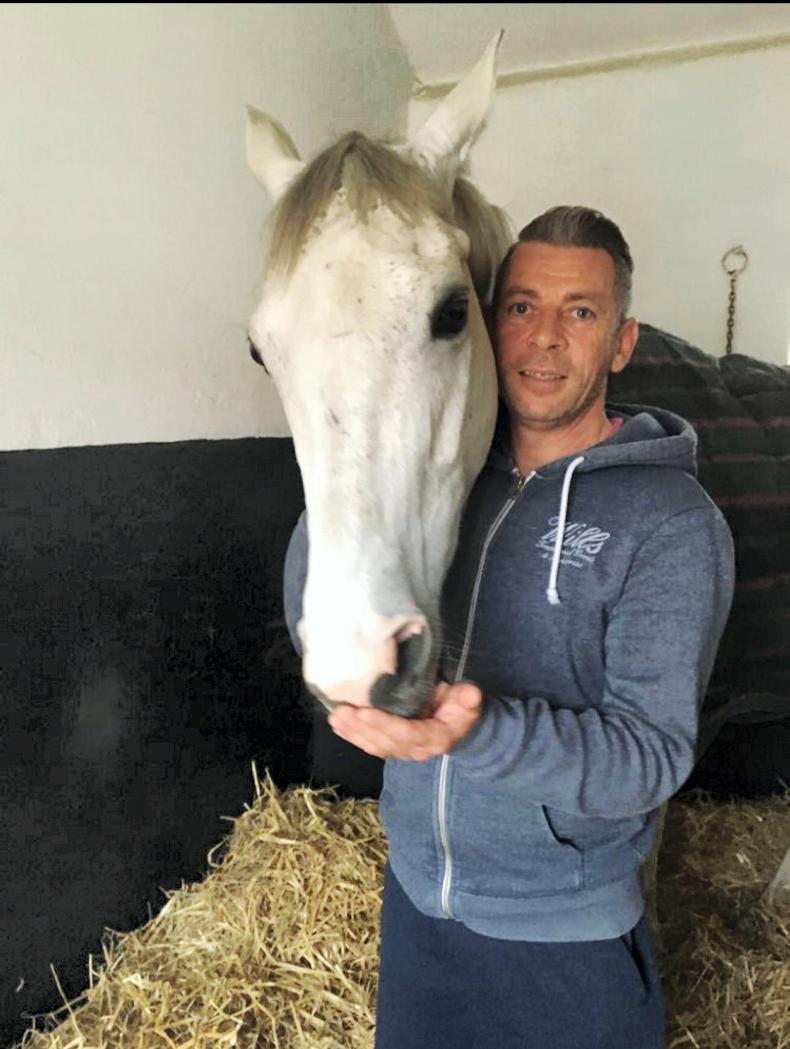


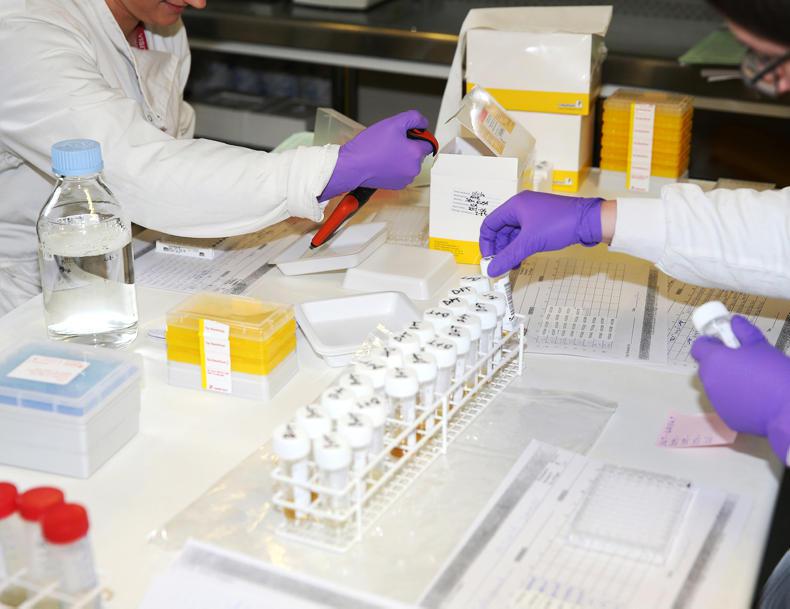
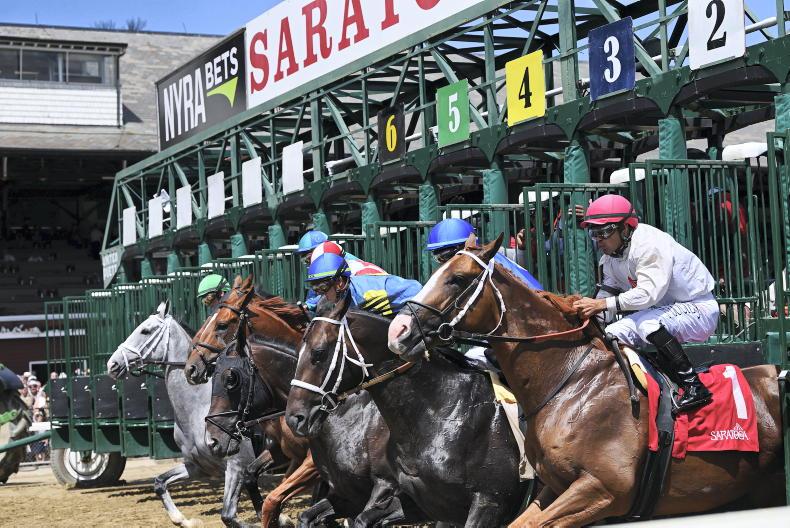
SHARING OPTIONS: